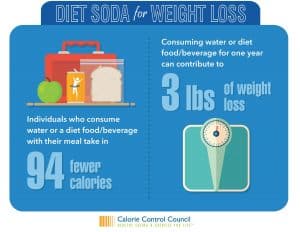By the Calorie Control Editorial Team

Generalizing Across Sweeteners
Critics of NNS oftentimes generalize negative findings regarding the effects of a particular sweetener to suggest all sweeteners have the same effect. This lack of recognition of the specific nonnutritive sweetener (NNS) used in a study and the view that they all have the same effect once consumed confounds the interpretation of the available research. Obesity is a complex disease with multiple etiologies and continually emerging theories of causality. Studies on the efficacy of NNS in general and aspartame in particular as a weight loss intervention face many challenges as a result.
Animal Studies Do Not Equate to Effects in Humans
The use of animal models to test NNS on weight loss can provide insight into mechanisms that may affect hunger and appetite and provide a way to compare diets that differ in macronutrient composition, but they cannot replicate the idiosyncratic eating behavior of humans. Personal food preferences, cultural meanings of food, socially reinforced eating patterns and numerous other factors related to income, education, food availability and lifestyle influence the food choices people make every day, making the results from animal studies of limited applicability.
Research Weak Spot: Subjective Recall
Studies based on collecting and analyzing food intake information from the population are constrained by the subjective nature of the data obtained. Most people have difficulty accurately recalling and reporting everything they eat and drink, whether for 24 hours or two weeks, and the information provided relies on estimated portion sizes and food composition in a world where no two pizzas are the same. Individuals are also likely to edit food and beverage intake information based on preconceived notions about appropriate choices, and there is no way to validate the information provided. The use of retrospective food histories to analyze consumption of foods and beverages containing NNS, including aspartame, share all of these limitations, plus the added difficulty of capturing changes in the type, volume and frequency of food consumed over a lifetime.
The Challenges of Projecting Study Results Across an Entire Population
Clinical trials designed to produce weight loss in humans are the best way to evaluate the effectiveness of an intervention, but these studies also face challenges on execution. There are individual differences in basal metabolic rates and energy requirements based on age, gender, body composition, physical activity, sleep, external temperature and state of health that cannot be controlled. As a result, there will be differences in the way any two people digest and metabolize the energy and nutrients in identical meals. People are also motivated to eat by different physiological, emotional, social and environmental cues. Wansink and Chandon (2014) report the amount eaten on any occasion can be influenced by plate size and color, room lighting and ambient noise, amount of food available and who one is eating with, to name just a few factors. Most of these variables can be controlled in short duration clinical trials, but they are virtually impossible to control in a free-living population for any length of time.
Randomized Controlled Trials Show NNS Reduce Energy Intake and Body Weight
Due to these persistent methodological issues, the most credible information about the role of NNS, like aspartame, on energy intake and body weight must be drawn from the preponderance of evidence obtained from meta-analyses and systematic reviews of short-term and sustained intervention randomized controlled trials. Rogers et al. (2016) has done just that and reports that human intervention studies with varying designs, settings and populations (including children and adults, males and females, and lean, overweight and obese groups) show the weight of evidence is in favor of the consumption of NNS in place of sugar as an aid in reducing energy intake and body weight. They further found no evidence from short or sustained intervention studies in humans that NNS increase energy intake. These findings are supported most recently by the work of Zheng 2015, Bellisle 2015, Miller-Perez 2014, and Mattes 2009. Studies using NNS as part of a controlled diet and exercise program have also demonstrated their effectiveness in reducing energy intake and body weight, as shown by Peters 2016, Peters 2014, Catenacci 2014 Tate 2012, Phelan 2009, and De La Hunty 2006.
Epidemiological research reporting an association between the consumption of NNS or NNS-sweetened beverages and weight gain in humans cannot be given strong consideration, according to Rogers et al. (2016) and Pereira (2014), due to confounding characteristics and behaviors of the population that cannot be controlled in these studies, as described above. They also present the strong likelihood of reverse causality, whereby the use of NNS began as a result of weight gain or a predisposed medical history rather than causing those problems. Rogers, et al., and Pereira also note that epidemiological studies are conducted to help develop hypotheses that can be tested in more controlled clinical trials, but they do not establish causality.
Epidemiological Research Can Help
An example of how epidemiological research can enlighten our understanding of NNS and weight management is provided by Drewnowski and Rehm (2014). These researchers looked at the diet quality and health behaviors (physical activity, smoking and alcohol use) of consumers of low-calorie sweetened (LCS) beverages, foods and tabletop sweeteners compared to non-users. Their data came from a representative sample of over 22,000 adults in the National Health and Nutrition Examination Survey (1999-2008 NHANES) and diet quality was assessed using the Healthy Eating Index 2005. They found the health behaviors of LCS consumers differed in several previously unobserved ways from non-consumers, including having significantly higher quality diets that held across every LCS category. Consumers of LCS were also less sedentary, exercised more, smoked less, and had higher education and incomes than non-users.
Statements from the Academy of Nutrition and Dietetics
Questions about NNS and weight management have also been addressed in the Position Statement on Use of Nutritive and Nonnutritive Sweeteners published by The Academy of Nutrition and Dietetics (AND) and most recently updated in 2012. It includes a systematic review of literature conducted using the Academy’s evidence analysis process and information from the Academy’s Evidence Analysis Library (EAL) to identify practice related questions and provide a conclusion statement for each question. Three questions were specific to the use of aspartame in adults or children and its effect on appetite or food intake and energy balance (weight). The Conclusions were:
For Adults “Use of aspartame and aspartame-sweetened products as part of a comprehensive weight loss or maintenance program by individuals may be associated with greater weight loss and may assist individuals with weight maintenance over time.” Grade I = Good
For Adults “There is good evidence that aspartame does not affect appetite or food intake.” Grade I = Good
For Children “Limited evidence indicates that aspartame consumption affects appetite or food intake in children. The 2009 update did not find new studies meeting the inclusion criteria for this question…the 2009 workgroup concurs with the conclusion formulated by the aspartame workgroup (2008).
Grade III = Limited
Further support for the use of nonnutritive sweeteners, like aspartame, in weight reduction and maintenance is provided in the AND’s Position on Interventions for the Treatment of Overweight and Obesity in Adults (2016). It emphasizes that since many dietary approaches can reduce energy intake, it is important that a client’s preferences and health and nutrient status are taken into consideration when a dietary intervention for obesity treatment is prescribed by the Registered Dietitian Nutritionist (RDN). The use of aspartame can help meet this objective by reducing caloric content of foods and beverages while considering palatability and enjoyment.
EAL Recommendation: “For weight loss and maintenance, the RDN should include the following components as part of a comprehensive weight management program: reduced calorie diet, increasing physical activity, use of behavioral strategies.” Rating, Strong, Imperative
EAL Recommendation: “For weight loss, the RDN should advise overweight and obese adults that as long as the target reduction in calorie level is achieved, many different dietary approaches are effective.” Rating: Strong, Imperative
EAL Recommendation: “During weight maintenance, the RDN should prescribe an individualized diet (including patient preference and health status) to maintain nutrient adequacy and reduce caloric intake for maintaining a lower body weight.” Rating: Strong, Imperative
The most important response to the persistent questions about NNS or aspartame and weight management is that NNS are not drugs, they are a tool, and consumers who use them while eating a balanced diet with adequate physical activity can successfully manage their weight.



